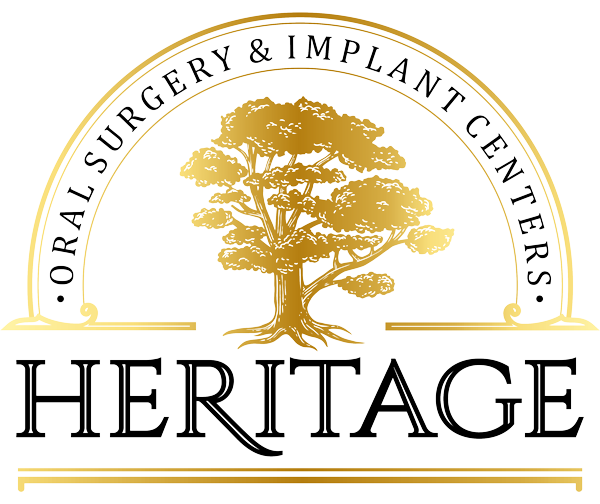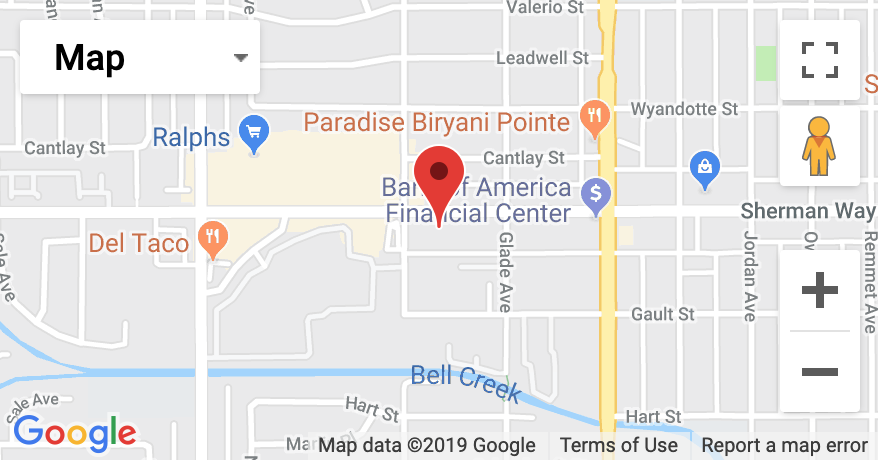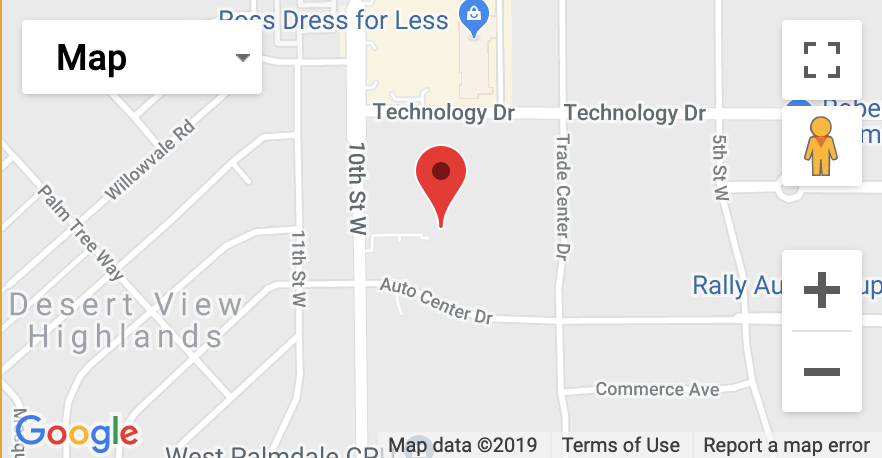Dental Implants
Dental Implants are changing the way people live! Dental implants can be used to replace a single tooth, multiple teeth or all of your teeth depending on your individual needs. They are designed to provide a foundation for replacement teeth which look, feel and function like natural teeth. The person who has lost teeth regains the ability to eat virtually anything and can smile with confidence, knowing that their teeth will look natural and their facial contours and lip support will be preserved.
Are you a candidate for dental implants?
If you have lost teeth from decay or gum infections or if you were born missing teeth you are a candidate. At Heritage Oral Surgery and Implant Centers our doctors will thoroughly review your health history, examine your mouth and review your x-rays. In some cases a 3D scan may be needed to further evaluate bone volume and the proximity of important anatomic structures such as your inferior alveolar nerve in the lower jaw and your sinuses in the upper jaw.
If your jawbone or gum tissue is not ideal for the placement of dental implants, our surgeons can rebuild the jawbone and gum tissue so that they can successfully hold implants over the long term. Our surgeons are specially trained in bone grafting procedures, which are designed to improve your prognosis for successful implant placement and restoration.
Dental implants are small titanium screws which are delicately inserted into the jawbone where teeth are missing. These metal anchors act as tooth root substitutes and are surgically placed into the jawbone. Implants bond with the bone and act as anchors to secure the replacement teeth. Following maturation of the bone around the implants, small posts called “abutments” are then attached to the implants which protrude through the gums, and provide stable attachments for artificial replacement teeth.
With tooth loss the supporting bone begins to resorb or can significantly decrease in volume. At times this bone loss can be severe resulting in both functional and esthetic compromise. Dental implants not only restore the ability to eat properly; they also help preserve facial structure, preventing the bone deterioration that normally occurs when teeth are missing.
For patients with dentures, dental implants can restore the confidence to eat, laugh, smile and be themselves again. They help to restore facial youthfulness that is often lost with age and tooth loss.
Total Arch Restoration Implant Supported Fixed Bridge
Who performs the implant surgery?
Most dental implants are placed by oral surgeons who have received advanced training in not only the correct placement of implants, but also in bone grafting to improve implant success. The doctors at Heritage Oral Surgery and Implant Centers have personally placed over 20,000 implants and performed thousands of grafting procedures. We have the training and experience to provide our patients with the best possible results.
The Surgical Procedure
Most implant surgeries performed by our surgeons can be done in one of our conveniently located Heritage Oral Surgery and Implant Centers. Each center has multiple surgical suites where operating room standards for sterility and safety are strictly followed. Patients with medical conditions requiring a hospital type setting can receive treatment at one of the local hospitals in their out-patient surgical center.
The placement of dental implants involves one or two surgical procedures. Most of our patients report that placement of a dental implant is much easier than having a root canal or a tooth extraction. The implant procedure can be performed with either a local anesthetic or intravenous sedation. The doctors at Heritage Oral Surgery Centers will discuss any concerns you may have about anesthesia and then you can decide which anesthetic would best meet your needs.
First, implants are placed within your jawbone. For three to six months following surgery, the implants are either beneath or “flush” with the surface of your gums. You should be able to wear your temporary appliance or denture and eat soft foods immediately following your surgery.
Single Stage Posterior Tooth Implant
Single Stage Anterior Tooth Implant
Two Stage Anterior Tooth Implant
The doctors and staff at Heritage Oral Surgery Centers are equally concerned with your comfort and cosmetic concerns. Many patients worry about being without teeth during the healing phase of treatment. We will coordinate with your general dentist to ensure that your temporary restoration or removable appliance will be ready when you are. You will leave with temporary teeth in place on the day of your tooth removal or implant surgery.
After the implant has bonded to the jawbone, a process known as “Osteointegration”, the restorative phase begins. Your general dentist will attach the abutments which extend through the gums to act as anchors for the artificial teeth. When the artificial teeth are placed the posts will no longer be visible. The entire process usually takes six to eight months. Most patients experience minimal disruption of their daily life.
Case Histories
Mary
A 15 year old girl, born missing a front tooth, found it awkward to wear an appliance with a false tooth attached. During orthodontic treatment, her orthodontist maintained room for the placement of an implant. Prior to removal of her braces a digital x-ray was taken to accurately measure the available space. Upon completion of her orthodontics, Mary was ready for an implant.
Her implant was placed into the proper site and the gums were closed over it. After the initial healing phase (6-8 weeks), her implant was uncovered and an implant post (abutment) and provisional crown were attached to the implant. The purpose of the provisional crown was to assist in the creation of a natural gingival height and contours. The final result is a beautiful smile.
Steve
A man in his early thirties was involved in a mountain biking accident nearly 15 years earlier. Both of his front teeth were knocked loose at the time. The teeth were repositioned and stabilized by his oral surgeon. Both teeth survived and did well during the following 10 years, however one of the teeth required a root canal and the other tooth root began to dissolve. The dissolving tooth could not be saved. Steve was a candidate for a dental implant.
The failing tooth was removed and a dental implant and temporary crown were placed at the same appointment. After several months Steve’s final abutment and crown were placed by his general dentist. He could smile and live with renewed confidence.
Long term care of Implants
Most natural teeth are lost due to decay, breakage or periodontal disease. Implants can’t decay and rarely break so the principle focus of long term maintenance surrounds oral hygiene and the prevention of periodontal inflammation. Implants will function and look esthetic for many years if you maintain good oral hygiene. Your general dentist can help you through regular check ups and dental cleanings. We recommend the use of special toothbrushes such as the sonic care toothbrush and in some circumstances a water pik.
Surgical Advances
Implant Supported Fixed Removable Denture
At Heritage Oral Surgery and Implant Centers we use the most recent advances in dental implants technology. We are often able to place single stage implants which do not require a second procedure to uncover them; however, it does require a minimum of three to four months before your replacement teeth can be placed. In some situations implants can be placed at the same time as the failing tooth is removed. This immediate placement of dental implants can be predictably done when there is adequate bone for implant stabilization and in the absence of infection. For our patients using ill fitting dentures, often implants can be placed and their denture can be modified and secured to the implants on the same day. This treatment is known as immediate loading and is sometimes referred to a “Teeth in a day” or “Teeth in an hour”.
The doctors at Heritage Oral Surgery and Implant Centers have the extensive training and experience to know which treatment modalities will provide the best outcome personalized specifically for your individual needs and overall desired results.
In summary, implants are most successful when placed and restored by a team of qualified doctors. As oral and maxillofacial surgeons we have unique training and expertise in performing the actual implant placement, tooth removal and when needed bone grafting. Your restorative dentist will take the necessary impressions, and make the final restorations. In most cases your dentist will also make any temporary prosthesis needed during the implant process.





